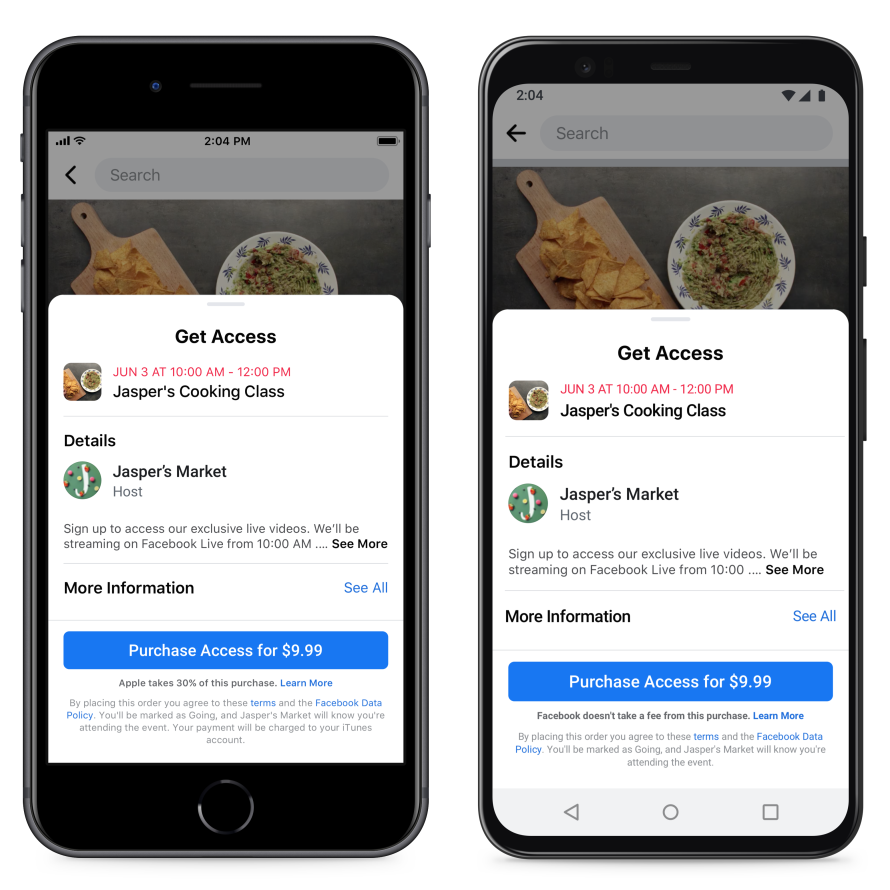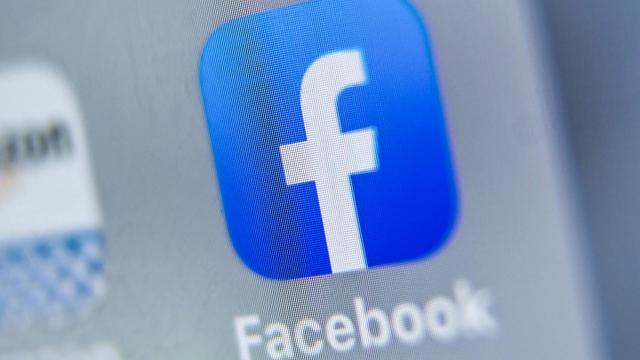It’s been a tough time for for Apple. Just a few weeks ago CEO Tim Cook testified under oath that his company’s app store policies — including the sky high tax that gives Apple 30% of any in-app purchases — were fair game, only to be slammed with an antitrust suit from EU authorities less than a day later. Yesterday the company was hit with another suit, this time from gaming behemoth at Epic, on the grounds that Apple unfairly penalised them for trying to bypass Apple’s mandatory cut.
Now, Facebook’s joining the pile-on.
Earlier today, the company rolled out a toolkit to let page owners in eligible countries — meaning publishers, performers, small businesses of all shapes and sizes — hold paid events on their on Facebook page. And unlike a certain rival (*cough* Apple *cough*), they won’t be taking a cut of any page owner’s cash. At least, not yet.
In a statement, Fidji Simo, the company VP who oversees Facebook’s titular app said that in order to “support small businesses and creators, Facebook will not collect any fees from paid online events for at least the next year.” If someone wanted to, say, attend an event held by one of their local restaurants or bars they could either pay through their web browser — or if they have an Android phone and live in a country where Facebook Pay’s been rolled out, a user could pay with that, too. In either of these cases, the business behind that page will keep all of the profits made from these individual payments. (For a year, if we’re to take Facebook at their word.)
On Apple, well, things work a little bit differently, according to Simo.
“We asked Apple to reduce its 30% App Store tax or allow us to offer Facebook Pay so we could absorb all costs for businesses struggling during COVID-19,” she writes. “Unfortunately, they dismissed both our requests and [small/medium businesses] will only be paid 70% of their hard-earned revenue.”
(Businesses of any size would only be getting their 70% chunk of change, since Apple’s tax doesn’t really discriminate here, and Facebook hasn’t defined what it considers a “large business” and if those are subject to different terms. It’s also worth noting that an app and a live event aren’t the same thing, and probably shouldn’t be equated in the form of a product announcement.)
And just to really underline how much Apple’s supposedly gutting small businesses here, Facebook made a helpful note on their iOS checkout page just to remind you that yes, Apple’s taking 30% of the hard-earned cash you’re donating to keep your favourite small biz afloat. According to Simo, Facebook submitted the graphic below directly to Apple earlier today to see if they’d approve it — but they’re still waiting to hear back.
In some ways, this looks a hell of a lot like Facebook double-dog daring Apple to give its app the boot the same way that Epic did less than 24 hours ago.

Unlike smaller companies — like the encrypted messenger Telegram or the paid email service Hey — Facebook’s never come after Apple for its anticompetitive practices, likely because it would look hypocritical when it’s been accused of holding a similarly tight chokehold over the developers that it works with. That said, Apple hasn’t granted its given its Big Tech chum the same latitude. At last year’s WWDC conference, Apple took a direct shot at Facebook’s spotty track record with consumer privacy by branding itself as an “asocial network” that you could trust, unlike those other guys (*cough* Facebook *cough*). That, along with the company’s other privacy-centric ad campaigns, could be construed as enough of an attack against Facebook that a volley in the other direction can be (at least in this writer’s opinion) a bit justified.
And in some ways, presenting Apple as the enemy of small businesses around the globe is a smart move on Facebook’s part, strategically speaking. For years, Facebook’s painted itself as a champion of small businesses; When the coronavirus hit, that PR campaign hit overdrive. The company rolled out roughly $US100 ($139) million in cash grants and ad credits for the untold number of mum and pop shops that might be struggling from the pandemic’s financial wrath.
And while the company might be legitimately helping small biz here in the short term, it’s always with underlying message that it’s, well, coming from Facebook. Remember Facebook? The platform that incited a genocide abroad, lets conservative misinformation to spread like wildfire, and isn’t afraid of mucking with the environment in order to lay down a bed of fibre-optic cables across the ocean floor. Facebook might be doling out millions to small businesses when they need them most, but we can’t forget how it made those millions in the first place.
